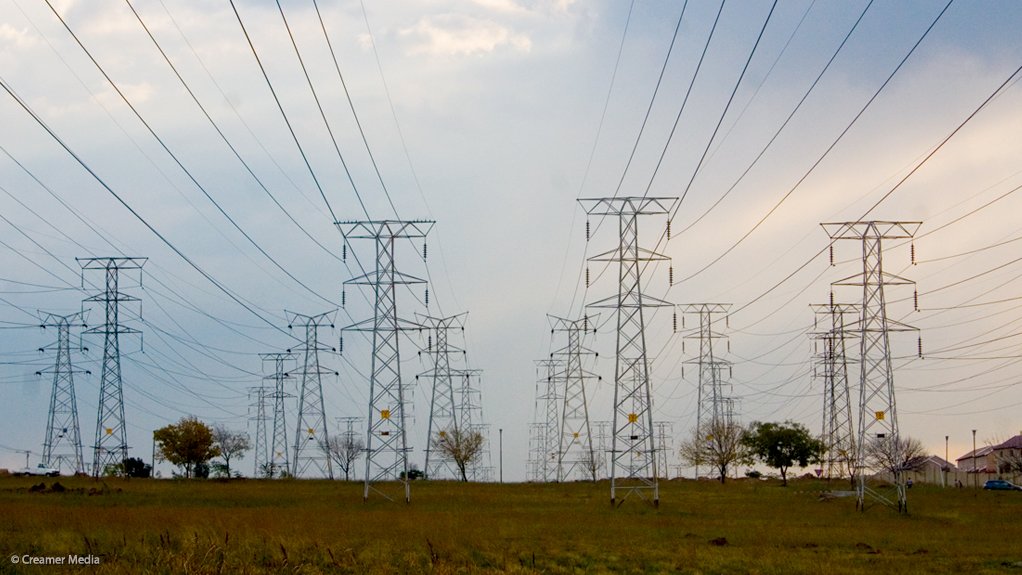The National Energy Crisis Committee (NECOM) reports that the initial market response to Eskom’s moves to purchase electricity that is immediately available from entities that generate their own power has been positive, with some 400 MW of interest in both its Standard Offer Programme and its Emergency Generator Programme.
Rudi Dicks of the NECOM secretariat reported on Friday that there was still an expectation that the two programmes could secure up to 1 000 MW of additional electricity in the short-term and confirmed that funding for the Standard Offer had been secured through the tariff increase announced by the regulator recently.
Through the Standard Offer Programme Eskom is able to buy power from existing producers at a set price, while the Emergency Generator Programme enables it to buy more expensive power at variable rates based on Eskom’s hourly market price.
Dicks could not say immediately whether there was equal market interest in both schemes, or whether one was favoured over the other.
Together with imports, the two schemes provide Eskom with an immediate way of securing additional energy to reduce loadshedding.
Eskom is reportedly already importing 300 MW more from the Southern African Power Pool than was the case before the Energy Action Plan was launched in July last year, and the utility is also in bilateral negotiations with Botswana, Mozambique and Zambia in a bid to bolster imports to about 1 300 MW in the near-term.
BATTERY STORAGE TENDER
Dicks also reported that Eskom had received an exemption from Mineral Resources and Energy Minister Gwede Mantashe to enable it to pursue the procurement of electricity from new emergency generation sources and announced that all the necessary approvals had also been secured to enable the Independent Power Producer Office to proceed with the procurement of battery energy storage.
He indicated that the request for proposals for the battery programme would be issued before the end of February.
Announcements would also be made in the coming week by Finance Minister Enoch Godongwana on how businesses and households would be incentivised to invest in their own solar systems.
Dicks indicated that it was possible that the Covid bounce back loan scheme could be repurposed to support solar investments by businesses, and possibly broadened to enable households to access the scheme.
KUSILE FLUE MANUFACTURING UNDER WAY
The immediate outlook for loadshedding remained bleak, however, with Eskom’s Thomas Conradie confirming that Stage 3 would continue to be implemented during the day over the weekend, with Stage 4 implemented from 16:00 in the afternoon to 5:00 in the morning.
This, despite Eskom having secure funding for diesel for the month of February so as to allow it to continue to operate its open-cycle gas turbines at high levels.
A new diesel shipment had been received during the week and the fuel would be transported from offsite facilities to the Ankerlig and Gourikwa power stations over the weekend.
Conradie also confirmed that progress was being made in its attempts to secure an exemption from the Department of Forestry, Fisheries and the Environment to enable the Kusile power station to install temporary flues that by-passed the flue-gas desulphurisation system.
He reported that Eskom was proceeding with preparations to install the temporary flues on units 1, 2 and 3, which became inoperable in October last year, owing to a build-up of slurry in the Unit 1 flue, leading to its eventual collapse. The flue collapsed in a way that also damaged the unit 2 and 3 flues, which are housed in the same chimney stack as the Unit 1 flue.
“We have also started with the manufacturing processes [for the temporary stacks],” he reported.
EMAIL THIS ARTICLE SAVE THIS ARTICLE ARTICLE ENQUIRY
To subscribe email subscriptions@creamermedia.co.za or click here
To advertise email advertising@creamermedia.co.za or click here











